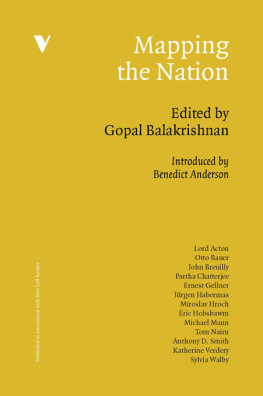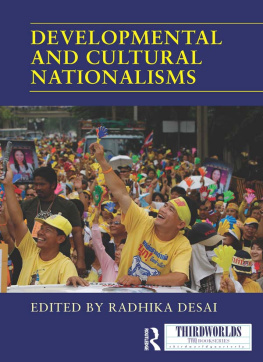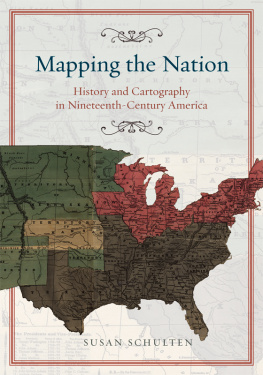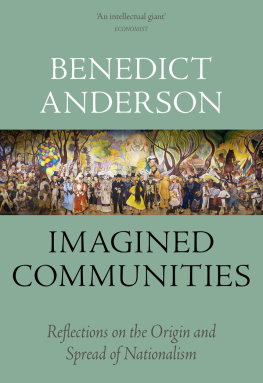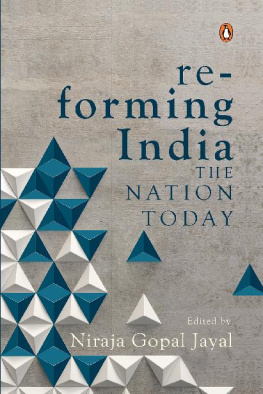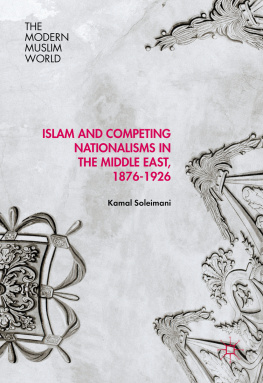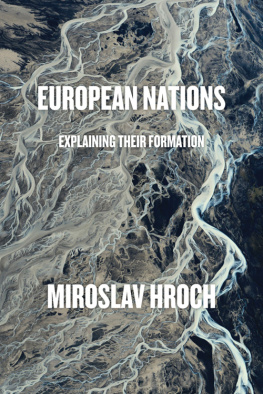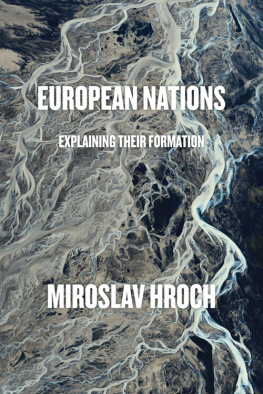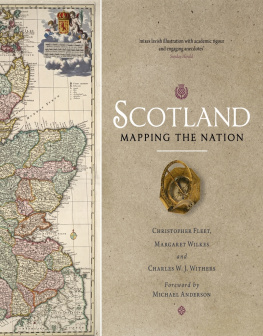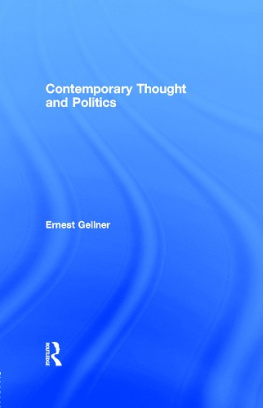Anthony D. Smith
Eric J. Hobsbawm
Benedict Anderson
There is no disagreement that nationalism has been around on the face of the globe for, at the very least, two centuries. Long enough, one might think, for it to be reliably and generally understood. But it is hard to think of any political phenomenon which remains so puzzling and about which there is less analytic consensus. No widely accepted definition exists. No one has been able to demonstrate decisively either its modernity or its antiquity. Disagreement over its origins is matched by uncertainty about its future. Its global spread is read through the malignant metaphor of metastasis as well as under the smiling signs of identity and emancipation; and where did these processes begin in the New World or the Old? Today, it is possible to ask a new kind of question how masculine is it? without there being any obvious best answer. How is its universality to be reconciled with its necessary concrete particularity? What discipline helps inquiry the most profoundly: history, psychology, political economy, sociology, anthropology, philosophy, literary criticism, or...? To add to the unease: given what seems today the vast role that nationalism has played over two centuries of world-politics, why have so many seminal thinkers of modernity Marx, Nietzsche, Weber, Durkheim, Benjamin, Freud, Levi-Strauss, Keynes, Gramsci, Foucault had so little to say about it?
All these uncertainties mean that any anthology mapping the terrain of nationalism finds the authors more often with their backs to one another, staring out at different, obscure horizons, than engaged in orderly hand-to-hand combat. Hence any brief introduction can only adumbrate some general contours.
The philosophical difficulties have been there all along. The Herder who famously wrote that Denn jedes Volk ist Volk; es hat seine National Bildung wie seine Sprache was positioned to insist on the uniqueness of every people/ Volk only as the author of a vast four-volume universal history entitled Ideen zur Philosophie der Geschichte der Menschheit. From the Enlightenment on up to very recent times the axiomatic frames in which the great European thinkers thought were universal so to speak, Menschheit and/or Weltgeschichte. Hegel spent his whole industrious life along the little 500-mile axis between Stuttgart and Berlin, but three and a half centuries of print-capitalism in the post-Renaissance age of European expansion seemed quite naturally to bring all antiquities and all contemporary societies into his library for perusal, reflection and theoretical synthesis. In the age that was launched with the (not yet French) Revolution, all the key concepts were understood globally -progress, liberalism, socialism, republicanism, democracy, even conservatism, legitimacy and later fascism. Curiously enough, nationalism too, so that when the time was ripe no one thought there was anything strange about a League of Nations, and Lloyd George could nonchalantly describe Mazzini as the Father of this international organization. Nor did this kind of thinking stay confined to Europe. When, at the end of the 1980s, the great contemporary Indonesian writer Pramoedya Ananta Toer published his vast historical tetralogy on the origins of Indonesian nationalism, he could happily describe his hero as anak semua bangsa child of all nations. Meanwhile, in the intervening half-century, across the globe, millions of people had sacrificed their lives for their nations sakes. It was gradually becoming clear that it was impossible to think about nationalism except comparatively and globally: but it was also very difficult to feel it, and act politically on it, in any but particular terms.
This disjuncture, and the theoretical stumble that it causes, helps to explain some of the history of serious thinking about nationalism, its hiatuses and bursts of energy. During the long century of conservative intra-European peace (18151914) only occasionally, and to a few, did nationalism give much theoretical anxiety and the occasions are instructive. The present collection opens with two of the most intelligent of these interventions.
In the 1860s, at the height of British imperial power but also after the Europe-wide upheaval of 1848, the revolutions led by Mazzini and Garibaldi against the Papacy and the Kingdom of Naples, the rise of the Fenians in Ireland and America, and the nationalist Jurezs successful checkmating of Archduke Maximilians attempt to establish a Habsburg dynasty in Mexico City the Naples-born Lord Acton (subsequently the first Catholic Regius Professor of History at Oxford), sounded the alarm bells. Enlightened defender of the universal principle of Legitimacy, he observed that what he called nationality was of three subversive modern ideas the one most attractive at the present time, and the richest in promise of future power. In his view, those states are substantially the most perfect which, like the British and Austrian empires, include various distinct nationalities without oppressing them, because inferior races are raised by living in political union with races intellectually superior and [e]xhausted and decaying nations are revived by the contact of a younger vitality. Against John Stuart Mills claim in Considerations on Representative Government that it is, in general, a necessary condition of free institutions, that the boundaries of governments should coincide in the main with those of nationalities, Acton argued that this conception was a pernicious residue of the French Revolution, a variant on the general modern tendency to found the State on speculative, abstract, monistic ideas (including, he noted sarcastically, the greatest happiness of the greatest number). Any such tendency inevitably led to revolutionary and absolutist politics and destroyed limited government and the pluralistic bases of true liberty. One can scarcely doubt that Acton would have regarded the murderous demise of former Yugoslavia in the name of ethnic cleansing as confirmation of his worst forebodings, and that he would have looked with prophetic satisfaction at the emergence of the conservative European Community.
As the Great War loomed on the horizon, Otto Bauer, defender of universal socialism, and regular lecturer at Viennas Arbeiterschule, penned a huge comparative tome which sought to show theoretically that, rightly understood, socialism and nationalism were perfectly compatible, and, practically, that the nationalist conflicts threatening the existence of the Austro-Hungarian Empire could be productively transcended in a projected supranational, socialist, Vereinigten Staaten von Gross-Oesterreich (VSGO)
Nothing could be more striking than Bauers position in relation to Actons and to the theses so forcefully propounded by Marx and Engels in The Communist Manifesto half a century earlier. Both Acton and Bauer wished to disconnect nationality from the state. The conservative Neapolitan Englishman saw nations (ahistorically and largely a-culturally) as merely natural, and thus requiring the imposition of an ethical Legitimist state above them; Habsburg rule was thus the threatened dike against the nihilist forces of modernity. Bauer, on the other hand, understood both nations and states as historically formed, but with national character and culture rather than the state as sources of value. The importance of the Habsburg Empire was thus that it formed a contingent historical shell of practices and institutions out of which a socialist federation of nationalities would emerge on the road towards the eventual withering away of all states. Conversely, against the Manifesto s view of the capitalist world market dissolving all national cultures, Bauer believed that progressive social development was increasing the density of contact between members of particular cultures, raising the level of those cultures, and promoting differentiation of human personalities; the function of socialism was not to counteract these tendencies but to spread the standardization of material life at the most advanced levels which capitalism had originally set in motion. (Thus only the bourgeois saw the nation under the sign of State Power.)

